Detailed introduction of Agricultural University of Athens:
Introduction and Overview
Agricultural University of Athens is one of the oldest universities in Greece and the third oldest institution of higher education in Greece. Located in the center of Athens, the university covers an area of about 25 hectares and is committed to promoting the development of Greek agricultural technology and economy through basic and applied research.
History and Founding
Founded in 1920, its history can be traced back to 1920, when it was established as the predecessor of the Higher Agricultural School of Athens. The first president was Spyridon Hasiotis, who is considered the father of Greek agricultural science. In the early days, the school faced challenges such as lack of funds and teaching resources. In 1937, it was moved to Thessaloniki and became part of Aristotle University. During World War II, students and faculty of the school overcame difficulties and used farmland on campus to produce food to alleviate famine. After the war, the school continued to develop and continued to update and improve its academic and scientific research capabilities after 1990.
School Strength
Faculty: It has more than 200 teaching and research personnel to provide professional teaching and guidance to students.
Academic research: Actively conduct research in the field of agricultural science. Since the establishment of the special account for research grants in 1988, it has carried out many research projects and educational programs funded by the European Commission, international organizations, the General Secretariat of Research and Technology of Greece, etc.
International cooperation: Established cooperative relations with many domestic and foreign universities and research institutions, such as signing a cooperation agreement with the University of Cyprus in 2016, and carried out cooperation in student exchange, teacher visits, joint research, etc.
Nature of the institution
Public university, funded and managed by the Greek government.
Educational philosophy
Aims to cultivate professional talents in the field of agriculture through high-quality education and research, promote the development of Greek agricultural technology and economy, and pay attention to the combination of theory and practice, cultivate students' innovation and practical ability, so that they can adapt to the needs of modern society for agricultural talents.
Key laboratories and disciplines
Key laboratories: There are plant biotechnology laboratories, animal nutrition laboratories, food quality and safety laboratories, soil science laboratories, etc.
Key disciplines: It has certain advantages and characteristics in the fields of agricultural science, food science and technology, plant and animal science, etc. For example, in the US World University Rankings, its agricultural science ranks 143, food science and technology ranks 189, and plant and animal science ranks 275.
Faculty
There are two colleges and 6 departments, namely the College of Agricultural Production, Infrastructure and Environment, which includes the Department of Crop Science, the Department of Animal Science and Aquaculture, and the Department of Natural Resources Management and Agricultural Engineering; the College of Food, Biotechnology and Development, which includes the Department of Biotechnology, the Department of Food Science and Human Nutrition, and the Department of Agricultural Economics and Rural Development.
Ranking
Ranked 1158 in the 2023 US World University Rankings, 437 in the Best Global Universities in Europe, and 10 in the Best Global Universities in Greece. It is not listed in the 2024 QS Grassland Rankings, but the Food Science and Engineering major ranked 201st in the world and the Animal Science major ranked 342nd in the world in the US rankings.
Fees
Undergraduate tuition fees are generally around 500-1000 euros per semester, and graduate tuition fees are about 800-1500 euros per semester. The specific fees vary depending on the major.
Campus Environment
Teaching facilities: It has multiple lecture halls, laboratories, libraries, computer rooms and other modern teaching facilities.
Agricultural facilities: There are agricultural facilities such as botanical gardens, vineyards, experimental fields, gardens, greenhouses, cow sheds, sheep pens, chicken coops, dairy equipment and aquariums on campus, providing students with a place for practical teaching.
Living facilities: There are student centers, indoor gymnasiums and sports venues to meet students' learning and living needs. In addition, the campus is adjacent to Iera Odos Avenue, close to the Acropolis and the ancient olive grove, and the surrounding environment is beautiful.
-
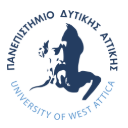
University of West Attica
-

Technical University of Crete
-

International Hellenic University
-

Aristotle University of Thessaloniki
-
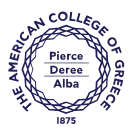
The American College of Greece
-
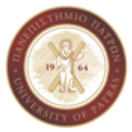
University of Patras
-
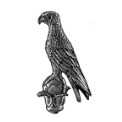
University of Ioannina
-

Democritus University of Thrace
-

Hellenic Open University
-
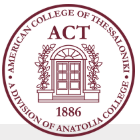
American College of Thessaloniki
-

Mesoamerican University
-

Istmo University
-

Mariano Galvez University of Guatemala
-

Regional University of Guatemala
-

Galileo University
-

Francisco Marroquín University
-

Rafael Landívar University
-

University of the Valley of Guatemala
-

University of San Carlos of Guatemala
-

Technological Institute of Tlaxcala Plateau
-

Golfo University
-

Technological University of South Sonora
-

Technological University of Huejotzingo
-

Tizimín Institute of Technology
-

Chilpancingo Institute of Technology

